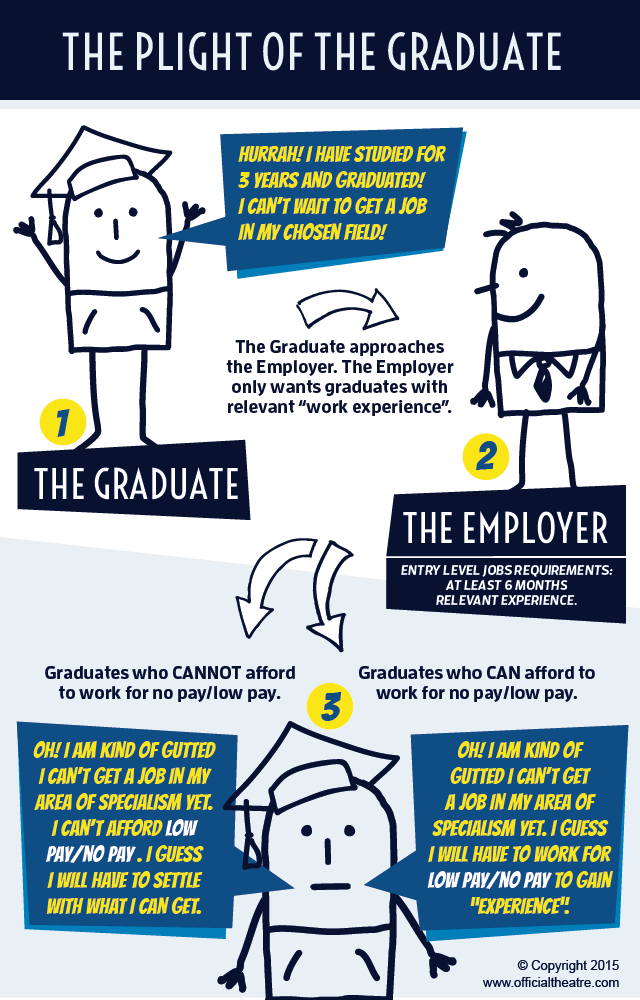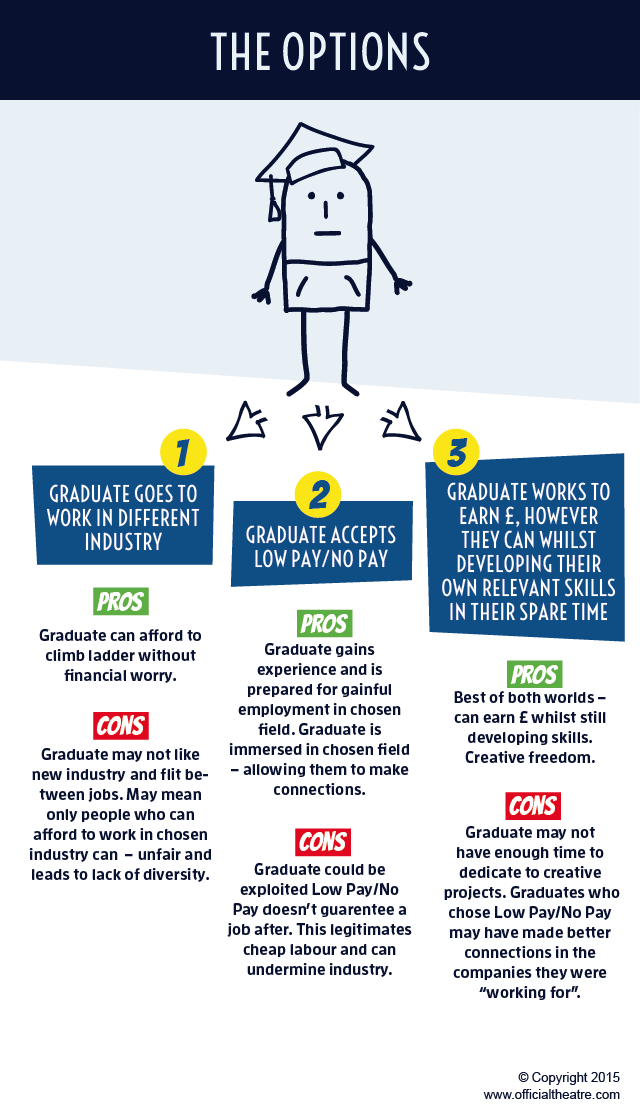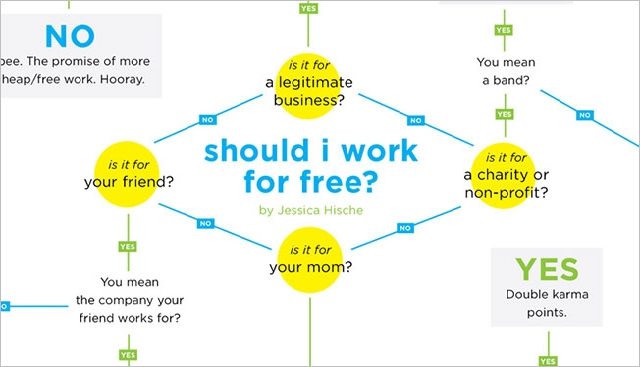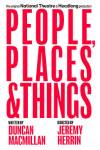Should You Work For Free? No Pay / Low Pay – Is It Ethical?
In a few short months around 500,000 people will graduate from university. They will have spent three or more years presumably putting their heart, soul and perhaps most importantly, time into achieving a qualification that prepares them for their chosen profession. Or does it?! Now I graduated from my first degree almost 5 years ago and it has been 3 years since I completed my NCTJ postgraduate diploma. Back then even a First Class Honours degree and a professional Journalism qualification didn’t denote gainful employment in my chosen field. Despite dedicating almost 4 years of my life to a topic, I was still being denied work due to lack of “EXPERIENCE.” OH RIGHT. Of course I am not alone, a point which the Telegraph’s David Ellis picked up on in a soul destroying yet truthful article outlining how 47% of graduates are taking up non graduate jobs – presumably after being told they lack the big E.

For me this was 3-5 years ago. The number of people graduating continues to rise, meaning the job market continues to become somewhat saturated. Now I am not just talking arts here (but OH do spare a thought for the poor buggers) I am talking ALL industries. SO despite how fabulous and qualified you may be, the problem is there are now so many of us fabulous and qualified people out there that prospective employers are asking more of us. But is it fair?
The Plight of the Graduate
Below is a little sketch of what I like to call “The Plight Of The Graduate.”

What Are Your Options
As I see it, graduates lacking experience have three options that essentially vary from sucking it up and working for low pay or no pay (the former OBVIOUSLY being the preferred), deciding to work somewhere that will accept their skill level but accept that they may not be working in their chosen profession OR finding a way to combine the two options in order to make it financially workable for them.
Work For Low Pay/No Pay
.@jamesteggin @EquityUK I believe any artists craft is honed by practice. Every painter has invested in paints before their first commission
— Andrew Keates (@andrewkeates) May 30, 2013
Above is a tweet (albeit from a couple of years ago) from a Theatre Director called Andew Keates. Now Keates seems to suggest that novices need a little investment before they paint the next Mona Lisa. Sure. I mean they may have spent 3 years studying (and paying for it!) at the Slade, but that is seemingly not enough. I understand what he is getting at here but there is a difference between providing your own metaphorical paints and allowing other people to profit from them. ANYWAY. Essentially “internships” and “work experience” at big companies can look really good on your CV and show a certain degree of commitment to your cause. Plus you might actually learn something, and gain that much needed “experience.” Holy grail…for those well off enough to sustain this anyway. Below is a link to a very interesting article by actor Robert Myles who gives a very balanced perspective on the perils of low pay in theatre.
New blog post, this time on the true cost of working in fringe theatre. Not experienced by actors alone I’m sure. //t.co/dLu9pGTgsb — Robert Myles (@robmyles) February 11, 2015
Work Somewhere Else
Loads of people just can’t afford the above. EVEN when companies are offering paid internships (a “well paid” internship can offer as little as £250 a week – under £1000 a month) when you live in a city like London (and elsewhere) rents can take up half of that easily. Then there is the cost of travelling to the internship, £31 a week for a travel card. Then of course there are bills. Is it feasible to LIVE on around £50 a week?! Many people think no and I don’t blame them. All of a sudden sacking off your hard earned degree and working in no qualifications required professions or entry level graduate jobs in different fields seems appealing. The HUGE problem with this is that, by many less affluent people choosing this option,various industries and ESPECIALLY the arts may well be losing out on creative talent, meaning that only those who can afford to stick it out do. Rebecca Atkinson-Lord explores this issue further in The Guardian.
Go Your Own Way
Don’t fancy being a slave to the man? You might not be Universal Studios or The Guardian, but that doesn’t mean you can’t put your skills to work for yourself. Many people work on their own projects, be it film, writing, acting, music etc. One of my best friends never went to university and instead dedicated his time to writing a book and making videos funded by crappy bar jobs he didn’t care about. He has now just finished working on an element of the latest Jurassic Park film in LA for a sizable fee. He never gave his skills away for free, he developed them for himself. Similarly Some of my greatest friends started writing blogs in their spare time and now have turned them into successful commercial ventures, like West End Wilma. If Mark Zuckerburg can make Facebook from his bedroom, why can’t you?

Of Course Low Pay/No Pay Isn’t Just About Graduates!
Whilst we have heavily referenced “the Graduate” above, this issue applies to anyone and everyone starting out in a new career. You may fancy moving in to the television industry after 20 years in finance and face similar issues. Here perhaps the issue is even more divisive; how many people chose to stay put in a comfortable career when chasing their dream may mean poverty?
Is It Ethical To Work For Free?
Obviously we are all aware, or should be, that we have free will. Obviously helping out a mate or family members is one thing; is it ethical to provide your skills and your time for free? We discuss the pros and cons below.
Who Are You and What Do You Stand To Gain
Low Pay/ No Pay sucks, but so does doing a job that you don’t care about. If you think that you stand to gain something, be it enjoyment or experience, then you should be the one who decides to go for it and no one should have the right to judge you – note the quote below, again by Andrew Keates.
I have no intention of supporting @EquityUK or any union that wants to affect my right to do what I wish with my own free time #lowpaynopay
— Andrew Keates (@andrewkeates) May 30, 2013
I applied for 100s of paid journalism jobs when I graduated. Did I get any? No. Did that mean I was going to stop writing articles and expressing my opinions…haha, god no. If you are a budding actor, film maker etc, would you rather sit around doing nothing or do something. Anything! That said, you need to know when you are being exploited. Being taken for granted isn’t cool, so in these situations I would deeply consider who it is you are “working” for. Below is an excellent video from casting director Erica Arvold who explains what she worked on for free when she first started out and why.
Who Is The Company?
I think the rules totally depend on who exactly is asking you to do what – again – helping out a mate or a family member is your prerogative and can be both hugely rewarding and a good way of bonding. However if you are being enlisted by an external source in some way or another, is it right for them not to pay you?
Profit Making Companies
- Low Pay: The problem with bigger companies is that they know they can get away with paying smaller amounts of money as eager graduates will fall over themselves trying to snag a position. This sucks and the companies should be ashamed of themselves if this is their attitude, however some do offer good and legitimate paid internships. If you are being paid enough to survive, sometimes it is worth taking a 6 month financial hit for the amount you will learn working with professionals.
- No Pay: In my opinion, if you are over the age of 18 you should never accept no payment from a profit making company in return for your labour. This is not okay. This also applies to a fair few big players in my industry who do not pay their experienced writers for copy or actors for work. In my opinion – not cool.
Not for Profit Companies
The THING IS…the world would be a beautiful place if every company out there (here I am talking specifically arts and leisure; things that could also be considered hobbies for SOME) could afford to pay their actors/staff. If it is a commercial venture then they should, but there are some much smaller, much newer companies out there trying to produce work. I have found this amazing and pretty hilarious infographic from shouldiworkforfree.com which pretty much summarises all scenarios for you! 
Secret Cinema
Let’s consider the above in relationship to Secret Cinema, a commercial venture that provides an immersive cinema experience for its customers. Yesterday it was revealed in the Independent that Secret Cinema have been recruiting “unpaid” actors for their productions. Their latest venture is charging £75 per ticket plus booking fee. Eesh. So where does that money go, if not partially to all its performers and crew? Can cinema goers justify spending £75, plus God know how much on food and drink whilst they are there? Do the rich laugh and sup their expensive craft beers as the poor slave for “an invaluable line on their CV.” Perhaps the “secret” in Secret Cinema is where their profits are going. Open book accounting anyone?!
Right so @secretcinema is £75 and I was like that’s expensive but justified and cool cause it’s so everyone gets paid. Apparently not. — Andrew Maddock (@andrewmaddock) March 19, 2015
Expenses and Perks
Some people are happy to work for expenses and perks, such as theatre tickets, free dinners etc. If this is the agreement then this is totally your call. If you are gaining something from it such as enjoyment and experience then I feel this is fine so long as you are not being taken for granted.
Does Working For Free Undermine Your Industry?
Well it is all a bit of a vicious cycle isn’t it? You need to get experience but the only people who are offering it to you are those form whom you must work for low pay / no pay. However by accepting this are we perpetuating the problem? Worse yet, are we endorsing exploitation? No wonder those older and more experienced are afraid; if cheap or free labour becomes a legitimised concept then how long will it be until the powers that be stop paying their comfortable salaries and start opting to take on those desperate enough to do it for less? This a problem. Perhaps this is THE PROBLEM. But who is to blame here?
Who Is To Blame
Can you really expect those at the bottom of the ladder not to do anything and everything to step up on it? If they are being born into a situation wherein there really is little to no other choice, can you blame them for doing what they think they have to and working for low pay or no pay? It’s an awful situation, but let’s not assume they like it anymore than those desperately clinging to the middle of the ladder.
Similarly, can we blame more experienced workers for fretting over their job security? Those who read Tim Walker’s scathing attack on “inexperienced” writers after his lost his job at the Telegraph will have smelt his fear, however it was unfortunately misplaced. Walker was blaming the emergence of young and often unpaid critics and bloggers for the loss of his job; cursing them for saturating the industry whilst not having his “experience.” Instead of throwing daggers downward to those desperate to climb (I’d like to note that Mr Walker has duly blocked me from social media!) he should have turned his eyes upward and pondered who was really to blame here…the ever cheapening, the increasingly destitute arts organisations. His employers. But above that, perhaps the state of arts funding in the first place.
Unfortunately it seems here like everyone is out for themselves. Organisations want to continue to reap a profit so they cut corners where they can; staff salaries. But is this right? No. In a recent Guardian article, Lyn Gardner mentioned Oliver Award Winning director, Marianne Elliot’s comments about artists themselves being the biggest subsidisers of the Arts. This is a sad truth. We are all subsidising the arts and we do so because we love it. However if we continue to do so, will it encourage those still funding it to be even cheaper, knowing they can get away with it?
How Can We Try And Solve The Low Pay No Pay Problem?
Below is a little summary of how I think students, universities, graduates, companies and the government can do their bit to tackle the issue.

So, as the above suggests, we can all play a part in tackling the issue of Low Pay/ No Pay. If I had known the climate into which I was going to graduate, I’d have spent my summers juggling the Edinburgh Fringe Festival and gaining that shiny and important “work experience.” Ultimately though, it is the government and subsequent funding bodies that needs to address this issue; yeah, it may cost them initially, but ultimately it will save them money in unemployment benefits when more young people are able to enter the work force and earn what they deserve – a living.
Further Reading
There have been some EXCELLENT blog posts on this ever debated topic and I would like to draw your attention to just a few:
- Robert Myles: An Expensive Habit, The True Cost of Working in Fringe Theatre.
- Equity’s “Professionally Made, Professionally Paid” campaign.
- Bryony Kimmings – Show Me Yours
Please Tell Me What You Think
I am obviously not the guru of all things Low Pay/ No Pay, I just wanted to write a blog post to vent my frustration and discuss the issue. If you have anything to add, be it your own experiences of Low Pay/ No Pay or your thoughts on how to solve the issue, please let me know in the comments section below.











